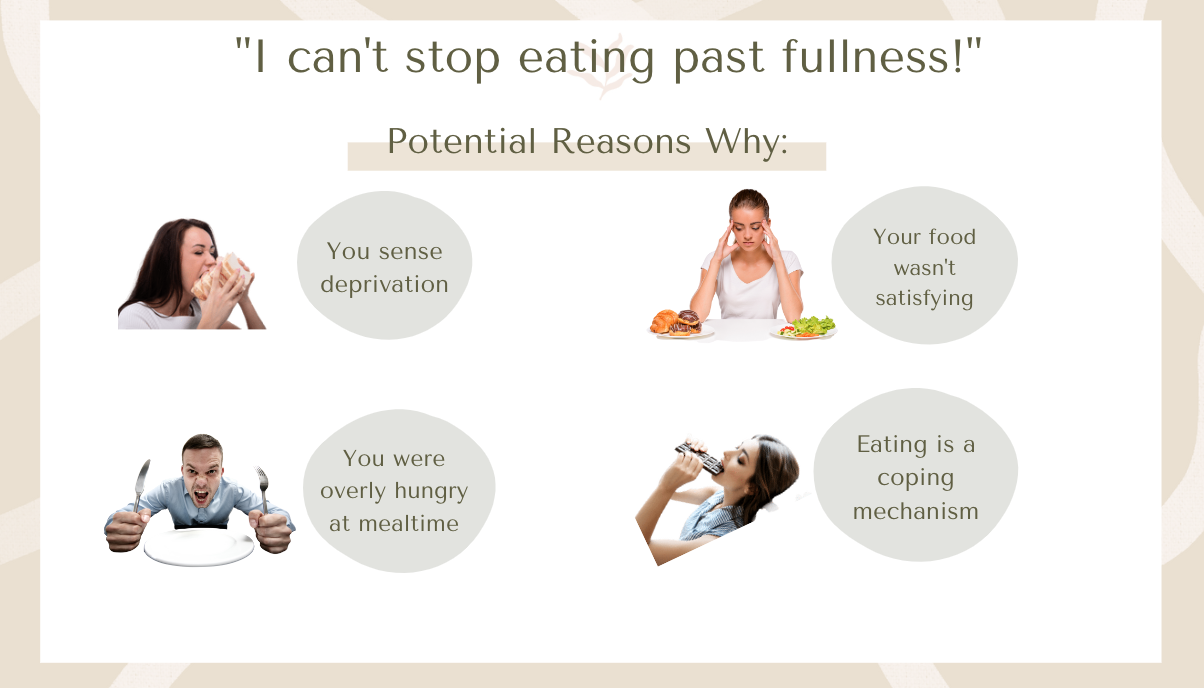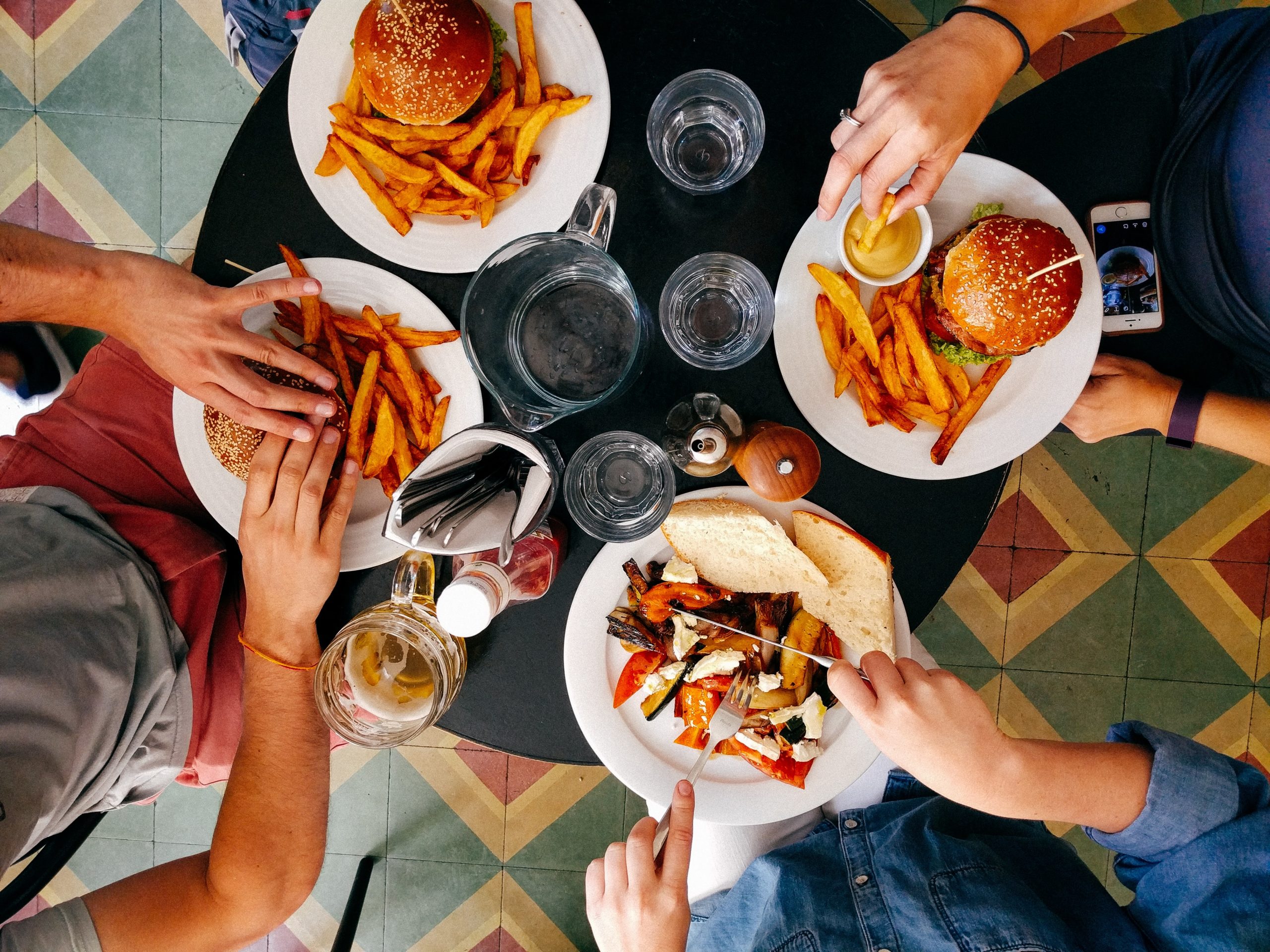Do you know you’re physically full, but continue to eat until you’re uncomfortable?
Do you have difficulty stopping, even though you are comfortably full?
Do you struggle with overeating frequently, even though you know you don’t intend to?
Let’s dive into what could be going on behind the scenes that may be contributing to this, as this is something I frequently support my clients with. You aren’t alone if you feel frustrated with this! Especially when people make intuitive eating out to be something as simple as “listen to your body”. Well…unfortunately, it’s a bit more than just that!
1. You may be eating in a rushed & distracted state.
Maybe you aren’t used to tuning into fullness cues yet, and maybe it makes even harder because of eating in a rushed, chaotic state. Sometimes when we eat while distracted, or simply have been dieting for so long, it takes time (& practice!) to tune into what comfortable fullness feels like. Try eating a meal completely distraction free, and tune into what different levels of fullness feel like in your body, and when you’ve comfortably had enough.
2. You sense deprivation.
When you’re actively dieting, or even just MENTALLY have thoughts that food is going to be “off limits”, you’re likely to engage in “Last Supper Eating”. This is when you perceive that you won’t be able to have the food again, so you’ve got to get it all in now! Remind yourself you have full permission with all food, and you can have it again anytime you want.
3. Your food isn’t satisfying.
You can be physically full, but still be driven to eat more for mental satisfaction. This is why it’s important to be sure we include foods we actually ENJOY, and to not deprive ourselves. Satisfaction is a big piece to feeling content and being able to stop once you’re physically full. Be sure meals include protein and fat in addition to carbs and fiber, as these also are big tools for satisfaction.
4. You’re not getting enough to eat overall, and/or you’re going into mealtime too hungry.
When we wait too long to eat, aren’t eating enough, or go too long between meals and snacks, our blood sugar dips low and we are HANGRY come mealtime. This leads to faster eating, and makes it easier to eat past comfortable fullness. Try to eat regular meals and snacks to prevent getting too overly hungry before mealtime. One of the biggest drivers for binge eating is dieting, so work on eating more throughout the day if you struggle with overeating at night (a common occurrence I hear from most of my clients!)
5. Food is a coping mechanism.
Find yourself after a time of working through these previous reasons, and still overeating? You may be using food as a coping mechanism. Emotional eating isn’t inherently bad, but if it’s your only way to cope with emotions, it’s worth exploring other, more helpful, coping skills. Working with an RD and therapist would be recommended! Some general ideas to help with this is to practice tapping into what emotion you’re feeling, and then asking yourself, “what is it I really need in this moment?” For example, if you’re seeking comfort, maybe you reach for a weighted blanket, curl up with a good book, light a candle, or hug a pet. Find what purpose the food is serving, then consider other ways to get that need met.

Get My 20 Favorite Recipes!
Get ready for some yummy food with my 20 favorite recipes. Receive an instant download to inspire you on your journey to nourishment!
Follow me on Instagram!
@CAROLINEGREENNUTRITION
